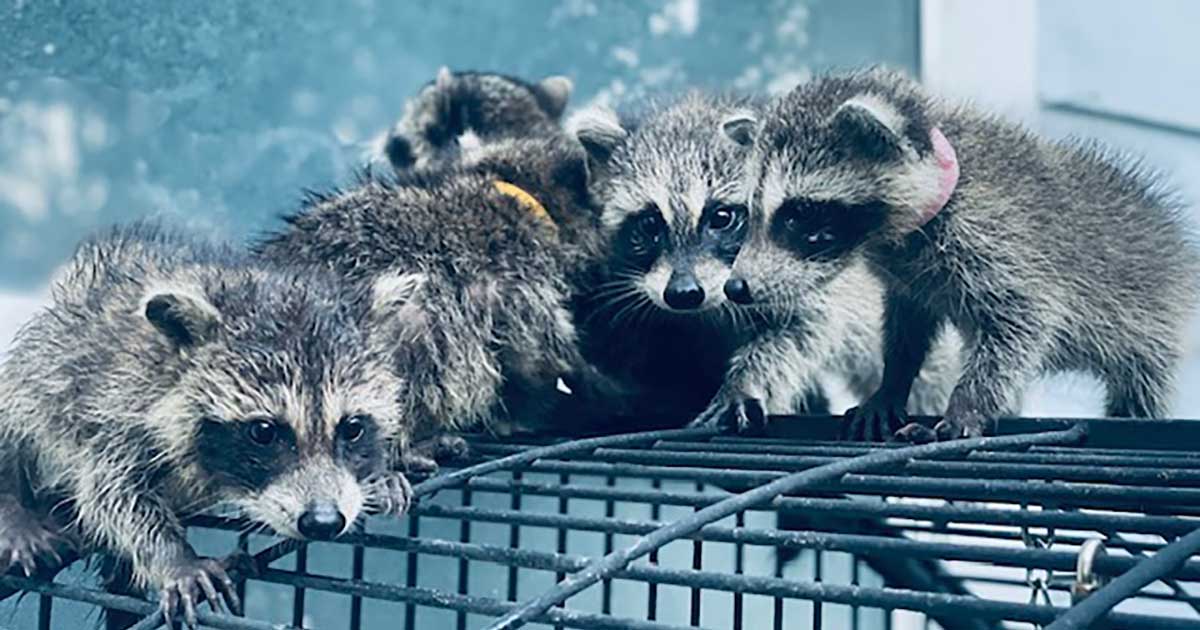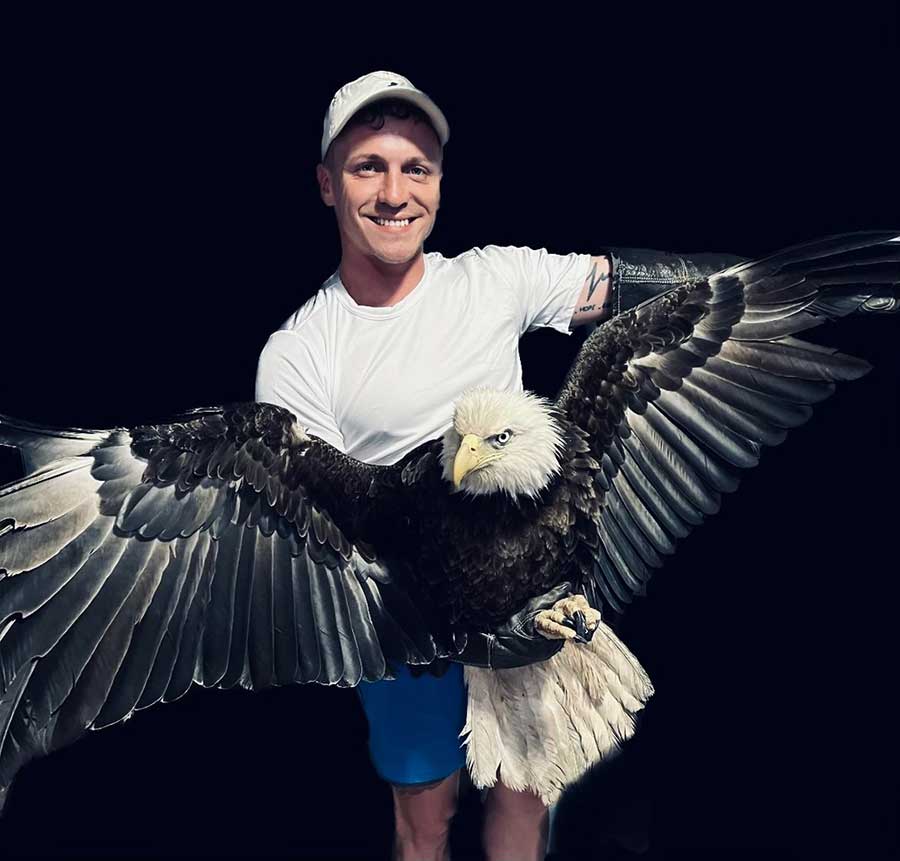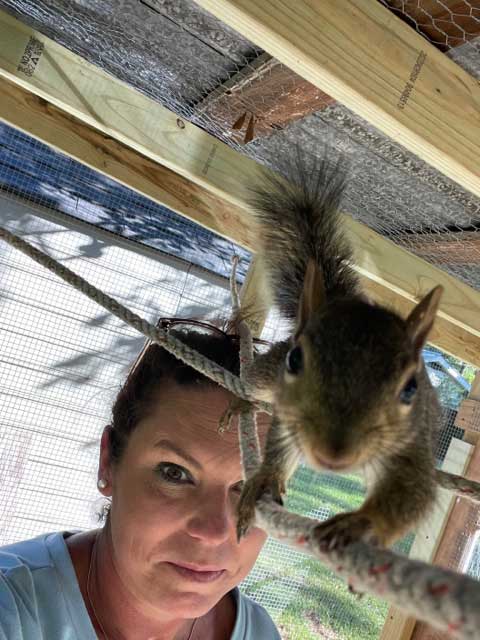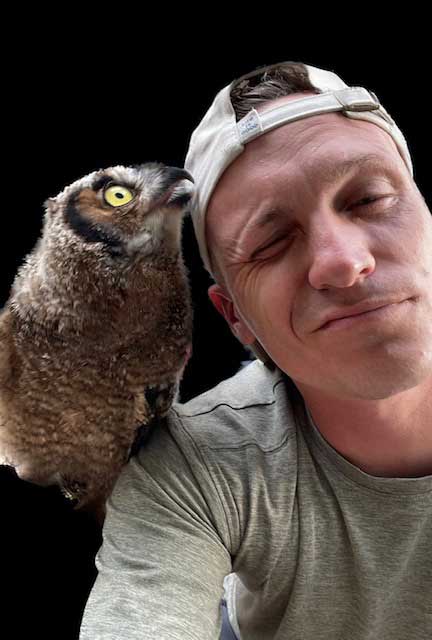Have you ever wondered what happens to injured or sick wildlife found in Hancock County? These are actual instances of citizens coming across injured wildlife and reaching out to Joshua Holland to help these creatures.
-by Maurice Singleton -photos provided by Joshua Holland
Holland has ambitions to focus on nocturnal wildlife species, and he believes there is a great need to treat injured wildlife on the western Mississippi Gulf Coast. “We need to have something close so that we can respond as quickly as possible,” said Holland of his efforts to open a recovery and rehabilitation center for sick and injured native species in Hancock County. “We’ll submit permits in January so that we have something that’s not across the state.” Holland said that in the heat of the summer, he may come across four or five turtles a day that have been injured by a vehicle while crossing a street. Unfortunately, they don’t all survive, but for the ones that do, Holland and his team of supporters are resourceful and can help to provide the best possibility for recovery. He recalled a situation when a deceased mother turtle came in, but her eggs were able to be salvaged. “Her legacy lives on because her eggs survived and are hatching,” said Holland. “The mother was run over; we did that her. Now it’s our job as humans to make it right the best we can.” Holland and his team often receive a photograph of an injured animal along with its location. It is important to remember not to try to feed the animal. Holland advises the person to keep the animal in a warm, dark place and wait for rehabbers to respond or bring it to the appropriate rescue. When Holland or one of his team members arrives at the scene, they assess the animal and begin a treatment plan. Although they are not always successful at saving the injured animal, many times they can help. Just like with saving the turtle’s eggs, they have been able to save the offspring of other species. “It’s a calling; it’s a passion; it’s something that, you know, you just love to do,” Holland explained. His passion for rescuing wildlife started when he worked for the Hancock County Sheriff’s Office. He was riding down Highway 90 when he spotted a small owl on the side of the road. “I shut down traffic in the middle of Highway 90 and walked over to it. It was a screech owl. People often mistake screech owls for baby owls, but it was fully grown.” Holland called the Mississippi Department of Wildlife and Fisheries, who gave him the number to a local rescue. He was able to keep in contact with the rehabber and get updates on the owl's condition. However, the owl eventually succumbed to its injuries, including a severe concussion; but that was Josh’s introduction to recovering and rehabilitating injured and sick animals. In January, 2024, he expects the addition of Wildlife Rehabilitation Outpost to Bay St. Louis, Waveland, and Hancock County. He and his team anticipate accepting animals from across the state that would benefit from their care. “We will not turn any animals away,” said Holland. “That would defeat the purpose of us as a wildlife rescue.” Initially, the wildlife rehabilitation permit will allow them only to serve mammals. Still, as they build the base of support for their 501c3, they will seek additional permits to help more animals. Holland said that they won’t be able to accept animals from across state lines. However, in the meantime, they will refer sick and injured animals outside their permitted area of responsibility to the appropriate recovery and rescue center. The Wildlife Rehabilitation Outpost will need support from community members and businesses throughout the county and state. Holland said that he will be calling on locals to support his efforts to conserve wildlife and help him get the word out. “With all the bad in the world, why not give back to the things that were here before us,” said Holland. “It takes a village. Let’s help put them back together, one piece at a time.” Enjoy this feature?Comments are closed.
|
Archives
February 2024
Categories
All
|
Shoofly Magazine Partners
Our Shoofly Partners are local businesses and organizations who share our mission to enrich community life in Bay St. Louis, Waveland, Diamondhead and Pass Christian. These are limited in number to maximize visibility. Email us now to become a Shoofly Partner!

































